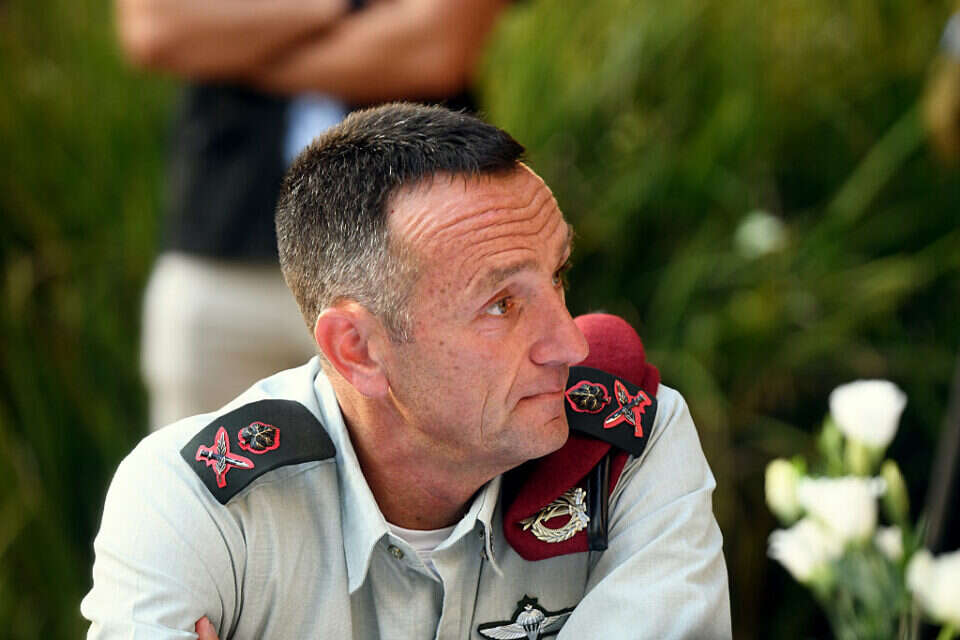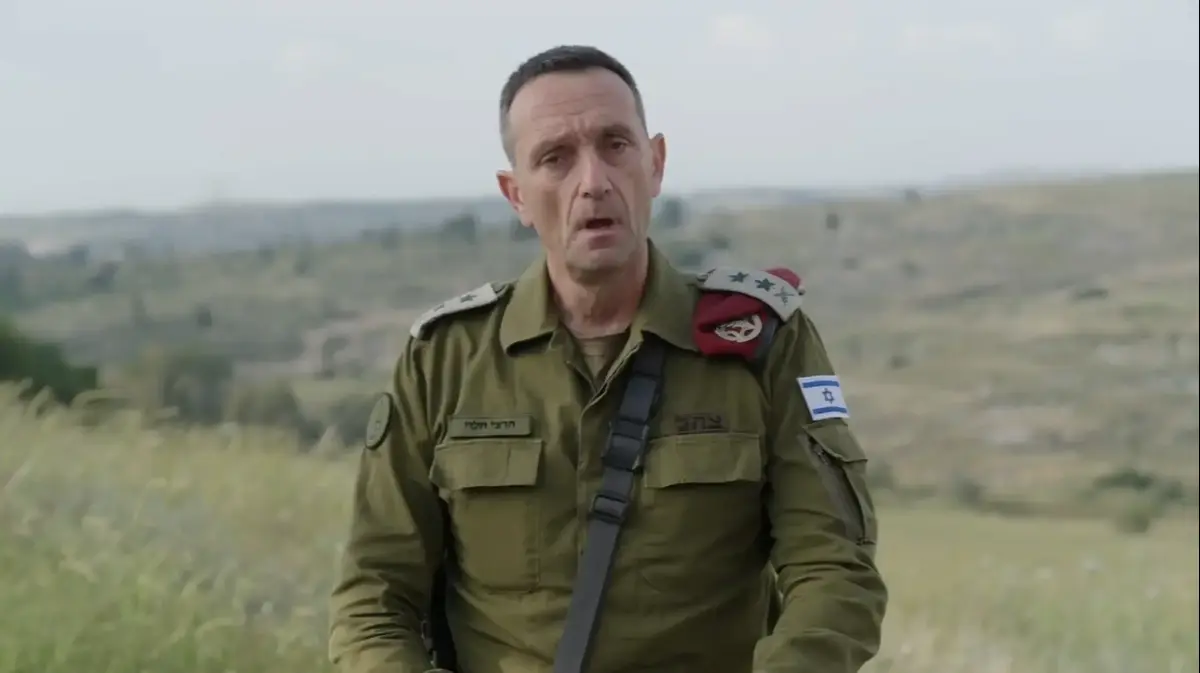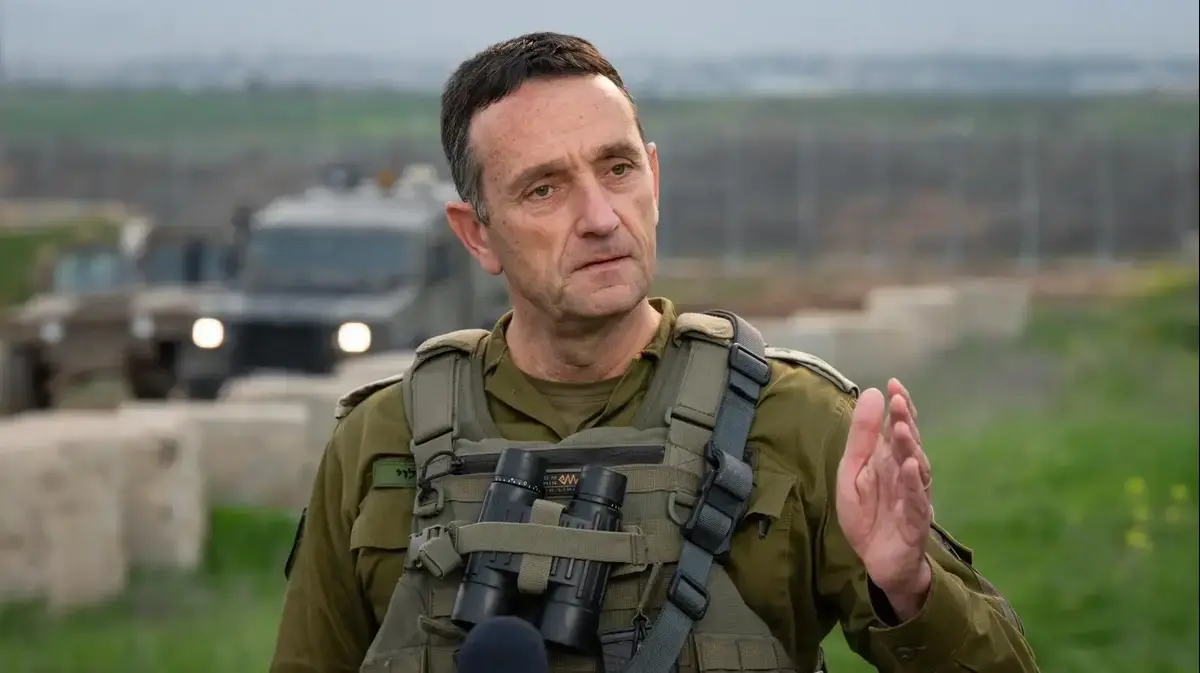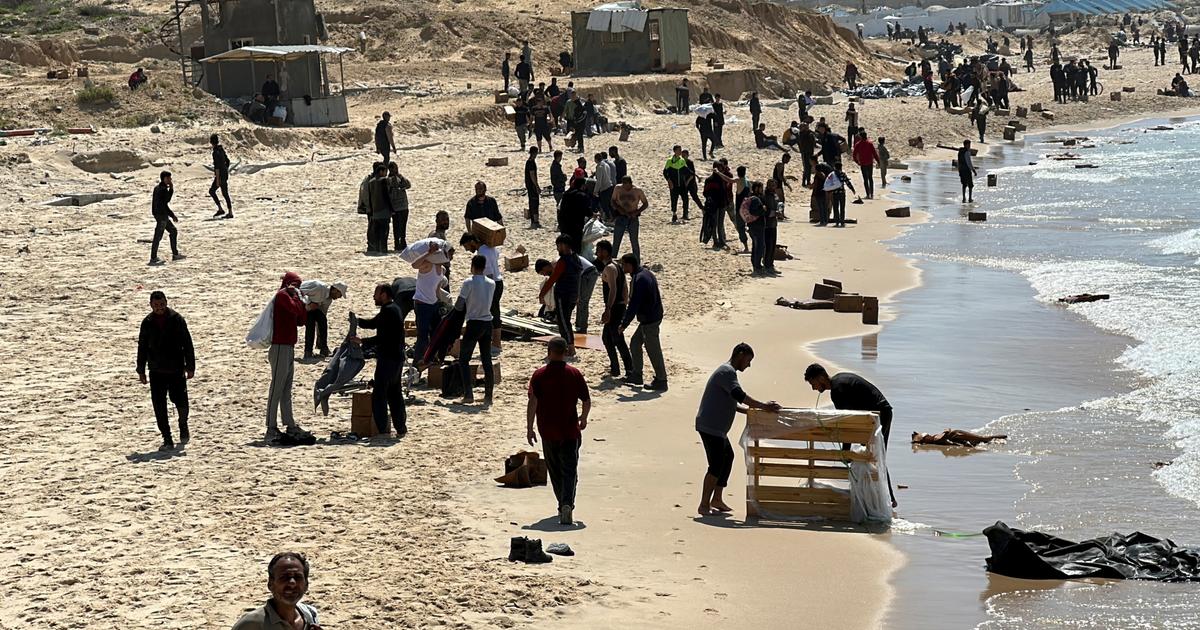The Chief of Staff, Hertzi Halevi, warns in closed conversations that the current situation is very dangerous, and if a solution to the current crisis is not found, the IDF and the State of Israel may find themselves in a serious problem.
Halevi has cleared a significant part of his schedule in recent days to deal with the issue.
He held several meetings with the top of the IDF, and also held talks with Air Force commanders. On Tuesday of this week he is expected to meet with reserve pilots, and the next day with reserve personnel from all IDF units.
In the talks, he tries to curb the trend of refusal, but also to prepare the IDF for the possibility that it will worsen as a result of the deepening of the political dispute surrounding the legal reform led by the government.
In the talks he held, the Chief of Staff called for the IDF to be left out of the political-public debate.
He defined the refusals as divisive and dangerous - as "the beginning of the end" - and said that it is a future opening for each public to choose the tasks it will carry out, and those it will not.
He added that the test of the IDF and the reservists is to maintain unity and cohesion in every mission, otherwise the IDF may disintegrate from within.
Halevi believes that there are elements that manipulate the backs of the IDF and the reservists in order to advance their arguments in the debate, and that they must take into account the heavy damage caused as a result. However, he believes that the great contribution of the reservists should be cherished and appreciated - Implicit criticism of chants along the lines of "anarchists", "terrorists" and "the fall of Nemush" that have been heard in recent days by ministers in his government and relatives. Further to this, the Chief of Staff believes that the reservists have a full right to protest and demonstrate, but they must leave their opinions outside the IDF fences. L. In simple words, the Chief of Staff's message to the reservists is: protest yes, refusal no.
In recent days, Halevi has also held several talks on the subject with Prime Minister Benjamin Netanyahu and Defense Minister Yoav Galant.
He informed them of the depth of the crisis and its dangerous potential, emphasizing the readiness and competence of the IDF, which is at the forefront of the Chief of Staff's attention.
Halevi clarified that at the current stage the competence of the IDF has not been compromised, but warned that the public dispute is causing cracks that he is not sure will be able to be filled in the future.
The Chief of Staff demanded in the talks the possible punishment of reservists - mainly pilots - who refused to report to missions as part of the protest. He said that the IDF should handle the crisis wisely, and not by force, as the damage could be many times greater.
He warned that the removal from the reserve of 40 pilots could turn into a snowball that would cause the retirement of 400 more pilots, and severely damage the functioning and competence of the Air Force and the IDF. Therefore, he made it clear to the commanders, the way to deal with the crisis is through dialogue and embrace, not by warning. According to him, when the crisis is over, The IDF will be required to think about how to act regarding the issues that are currently looming, first and foremost the issue of some people's conditional deployment to the reserves.
Halevi's decision to avoid punishing the refuseniks is also rooted in the centrality of the reservists in the IDF in general, and in the Air Force in particular. He told his listeners that in the five weeks in which he served as Chief of Staff, he managed to approve quite a few Air Force sorties, and in all of them reserve pilots participated, which were sometimes more from 50 percent of participants in the task.
Halevi warned in the ongoing talks that the current rift may also reflect on the strength of the State of Israel and the strength of the IDF. In recent days, cartoons have been published in the Arab press of pilots walking away from the bases, and statements have been heard from various parties in Arab countries that indicate that they see the recent events as an opportunity to who may be tempted to take advantage of it.
The combination of these - the possible harm to the competence of the IDF with the erosion of intra-Israeli cohesion and, as a result, the deterrence it transmits towards its enemies - is very preoccupying to the top of the IDF, and the Chief of Staff at its head. , and at the same time to clarify to the political level the dangerous potential of the existing process. Halevi said in the talks that he does not intend to interfere in the political processes, but all concerned must understand the possible consequences for the state and its security.
Halevi also directed the IDF commanders to deal intensively with the issue. The main effort now is to curb the wave of refusals - while allowing the reservists freedom of protest and providing support for the importance and value of their service - but also to prepare the IDF for the possibility that it will intensify and deepen in the coming period.
were we wrong
We will fix it!
If you found an error in the article, we would appreciate it if you shared it with us









